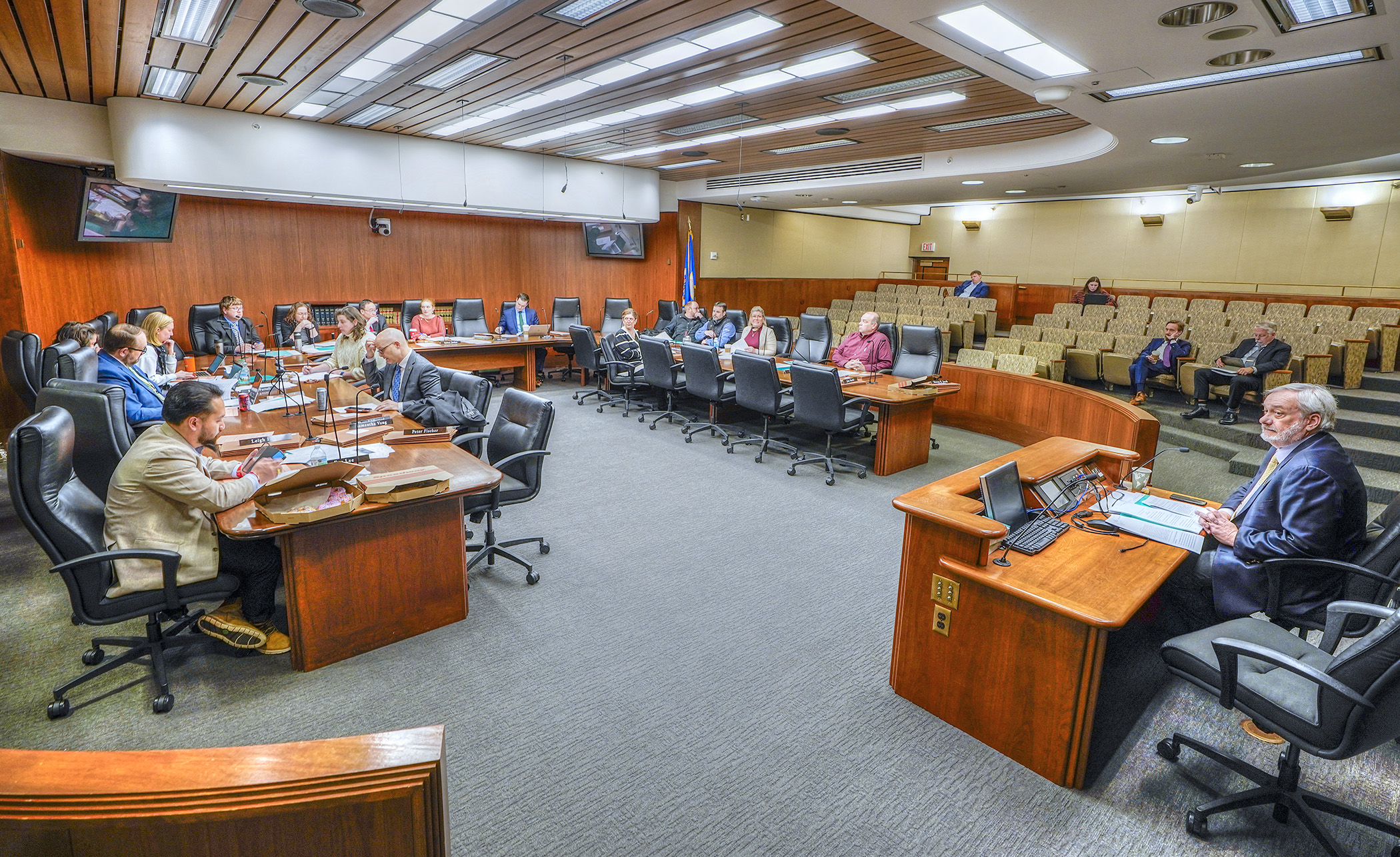House environment panel approves ‘minor’ policy bill with least controversial provisions

Bottle deposits and plastic waste reduction programs are not advancing to the House Floor. At least not yet.
House members may end up voting on those issues this year, but they aren’t part of a what Rep. Rick Hansen (DFL-South St. Paul) called a “minor policy bill” approved Friday.
The House Environment and Natural Resources Finance and Policy Committee approved HF2774/SF2904*, as amended, on a split-voice vote and sent it to the House Floor.
Hansen, who sponsors the bill with Sen. Foung Hawj (DFL-St. Paul), said the bill contains what he considers the least controversial policy measures, and many provisions are very technical. “We will have further work that we will continue to do, but we thought it was important to get a little bit done.”
Electronic license system
The bill would start changing statutory language to prepare for digital licensing, which the Department of Natural Resources aims to launch next spring. For example, it would change “snowmobile trail sticker” to “snowmobile pass” and would remove a requirement that game and fish license applications be made in writing.
When that issue was first heard in committee, Rep. Josh Heintzeman (R-Nisswa) asked if the system would be vulnerable to a software meltdown at launch. DNR officials reassured members that the vendor, S3, has successfully implemented licensing systems for other states including Arkansas, Michigan, Missouri and Ohio and that paper would still be an option.
Native rough fish
The bill would further define and help conserve native rough fish, in some cases extending to native rough fish the same rules that apply to game fish. The aim would be to distinguish native species that may not be as popular with anglers from invasive species.
Some native rough fish named in the bill include: bowfin; bigmouth, smallmouth,? and black buffalo; white, blue, spotted, and longnose sucker; northern hogsucker; quillback;? river and highfin carpsucker; black, river, shorthead, golden, silver, and greater redhorse; black, brown, and yellow bullhead; longnose and shortnose gar; and freshwater drum. Common carp would be excluded.
The bill would also modify policy affecting the Board of Water and Soil Resources, with many provisions streamlining, modernizing and clarifying state laws. Drawing scrutiny from Heintzeman, however, was a provision that would give the state rulemaking mechanisms to protect water courses that are not public waters. This provision was included after protections offered by the federal government were removed following a recent U.S. Supreme Court case.
Other provisions would:
- expand opportunities to protect native prairies;
- combine the Fisheries Oversight Committee, Wildlife Oversight Committee and Budgetary Oversight Committee into a 15-member Fish and Wildlife Oversight Committee;
- require in some cases that manure applicators have a management plan including Department of Agriculture recommended best practices; and
- expand the definition of feral swine beyond wild boar to include hogs, pigs, swine and peccary that have lived in the wild during any part of their lifetime. This would include released (as defined by statute) domestic hogs unless the owner reports the release properly and recovers the animal within 72 hours of notification.
***
What’s in the bill?
The following are selected bills that have been incorporated in part or in whole into the environment and natural resources policy bill:
Related Articles
Search Session Daily
Advanced Search OptionsPriority Dailies
Speaker Emerita Melissa Hortman, husband killed in attack
By HPIS Staff House Speaker Emerita Melissa Hortman (DFL-Brooklyn Park) and her husband, Mark, were fatally shot in their home early Saturday morning.
Gov. Tim Walz announced the news dur...
House Speaker Emerita Melissa Hortman (DFL-Brooklyn Park) and her husband, Mark, were fatally shot in their home early Saturday morning.
Gov. Tim Walz announced the news dur...
Lawmakers deliver budget bills to governor's desk in one-day special session
By Mike Cook About that talk of needing all 21 hours left in a legislative day to complete a special session?
House members were more than up to the challenge Monday. Beginning at 10 a.m...
About that talk of needing all 21 hours left in a legislative day to complete a special session?
House members were more than up to the challenge Monday. Beginning at 10 a.m...